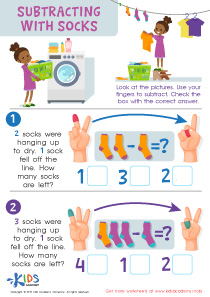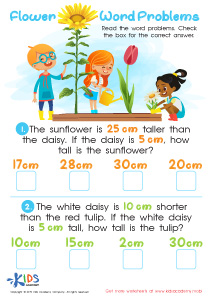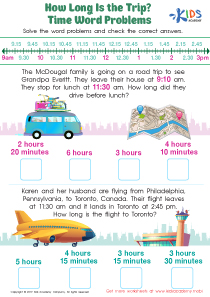Cognitive Development Addition and Subtraction Word Problems Worksheets for Ages 4-5
4 filtered results
-
From - To
Boost your child's cognitive skills with our engaging "Cognitive Development Addition and Subtraction Word Problems Worksheets" specially designed for ages 4-5! These worksheets are crafted to enhance young learners' problem-solving abilities and understanding of basic math concepts. By incorporating vibrant illustrations and relatable scenarios, kids can tackle word problems seamlessly, making learning fun and effective. Perfect for developing critical thinking, improving concentration, and fostering a love for math from an early age. Ideal for both classroom and at-home activities, these worksheets are a great tool to support early cognitive development in a playful, educational way.


Enrichment -2 Step Word Problems Worksheet
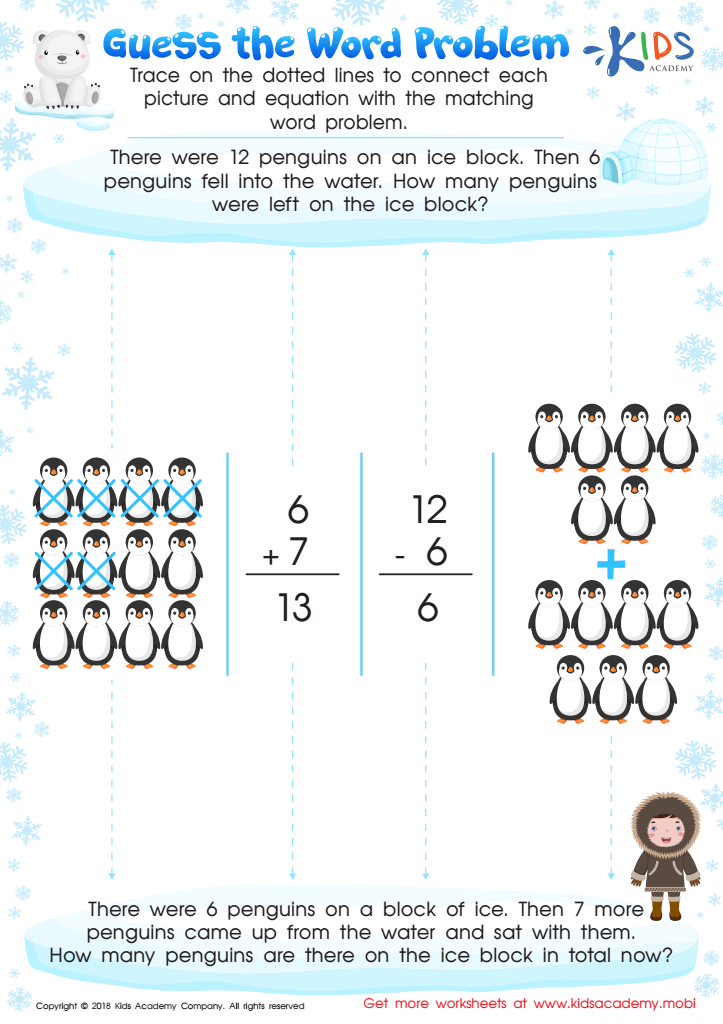

Guess the Word Problem Worksheet
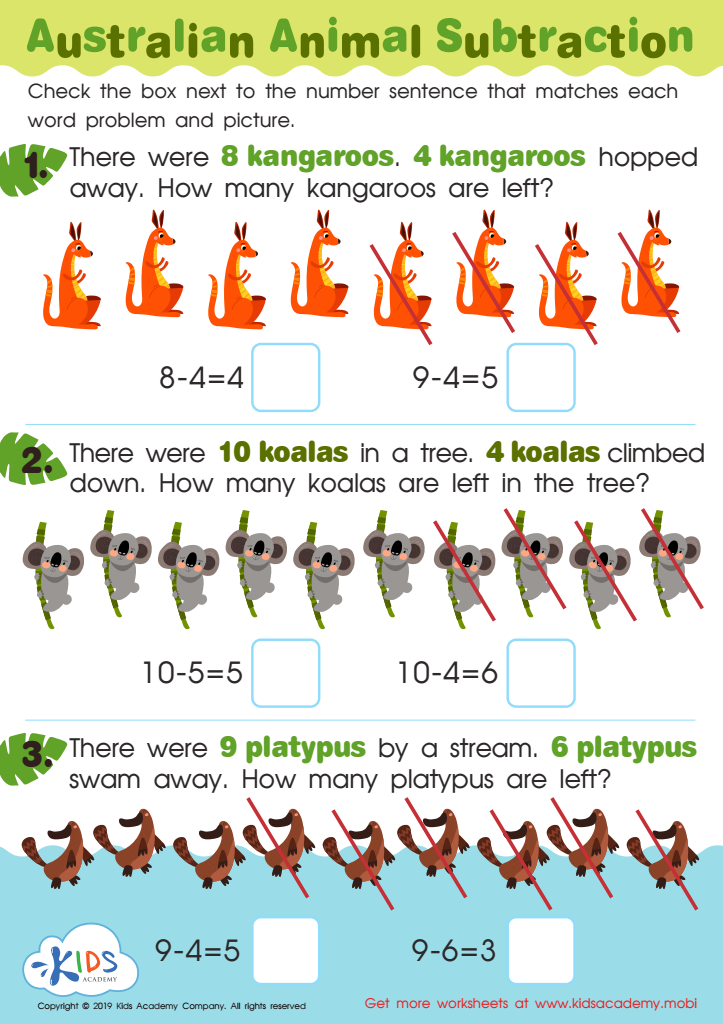

Australian Animal Subtraction Worksheet
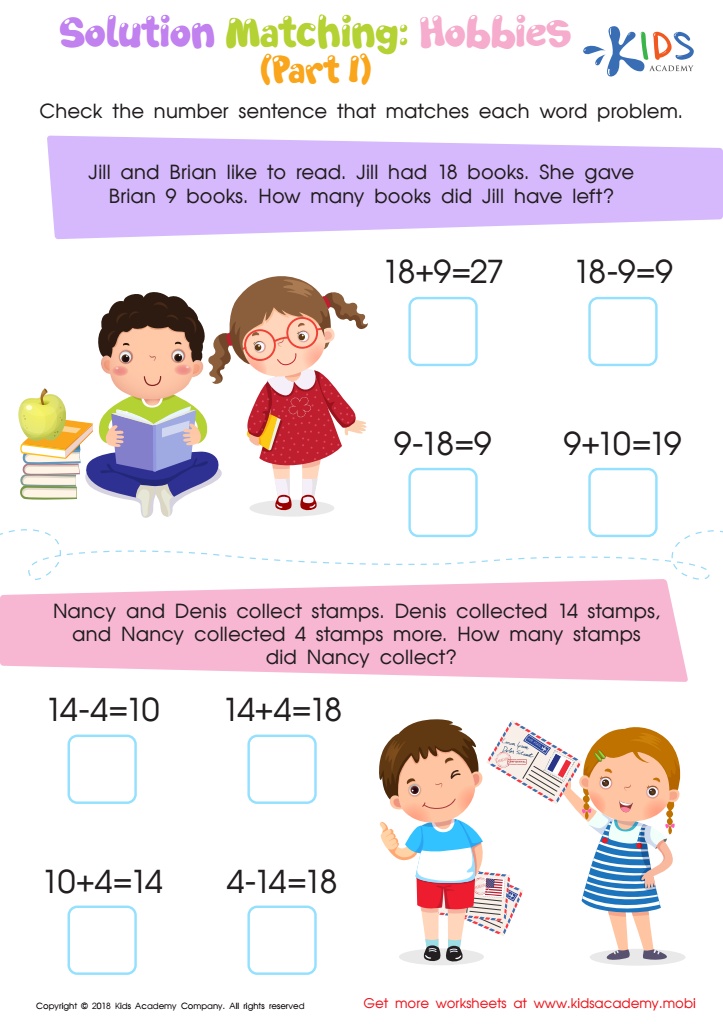

Solution Matching: Hobbies. Part 1 Worksheet
Parents and teachers should pay close attention to cognitive development involving addition and subtraction word problems for children ages 4-5 because this early introduction to mathematics problems plays a critical role in building foundational skills that support future learning. At this young age, children are developing their abilities to think logically, solve problems, and understand numerical relationships. By engaging in age-appropriate word problems, kids learn to translate concrete real-world situations into abstract mathematical concepts.
Word problems also serve multiple cognitive functions: they promote language development by encouraging children to listen and understand the scenario presented; they bolster comprehension skills by requiring kids to think about what is happening in the problem; and they develop their reasoning skills as they figure out the solution. These exercises also encourage perseverance and critical thinking, crucial skills for academic success.
Additionally, early mastery of basic mathematical operations can lead to greater confidence and enthusiasm for mathematics as children progress through school. It sets the stage for more complex math topics, improves academic self-esteem, and can even lead to better performance in other subjects that require problem-solving abilities. Nurturing this aspect of cognitive development helps ensure a well-rounded, competent, and confident learner, better prepared to tackle a diverse range of academic challenges.
 Assign to My Students
Assign to My Students








